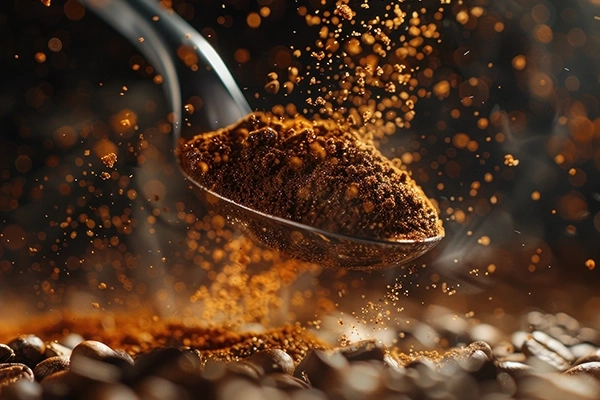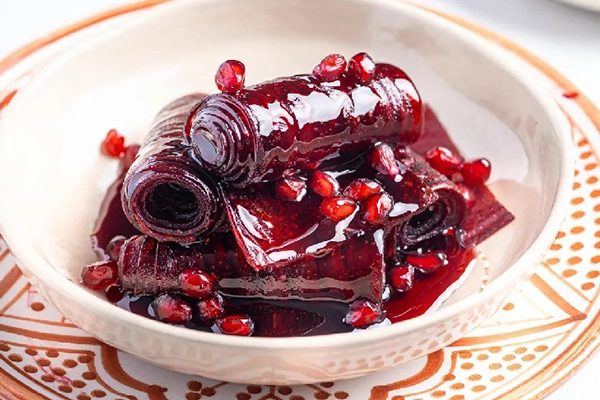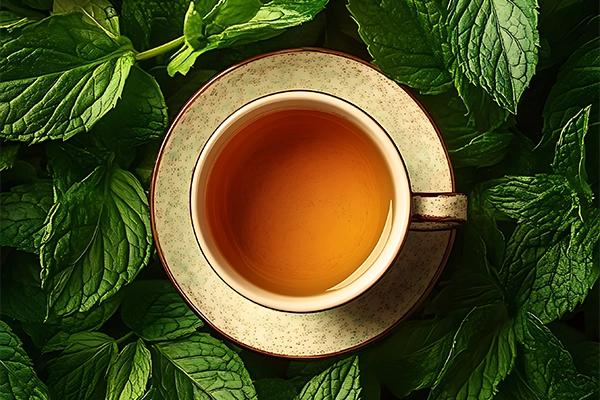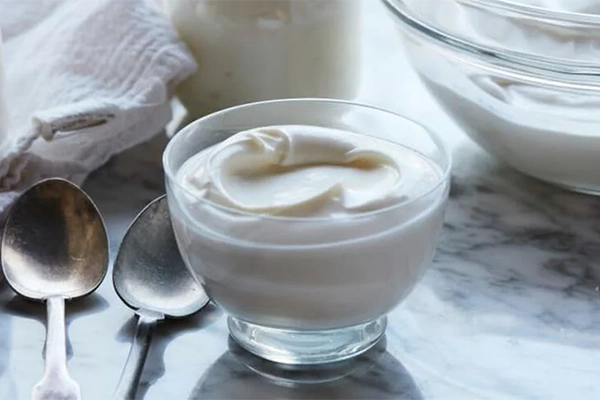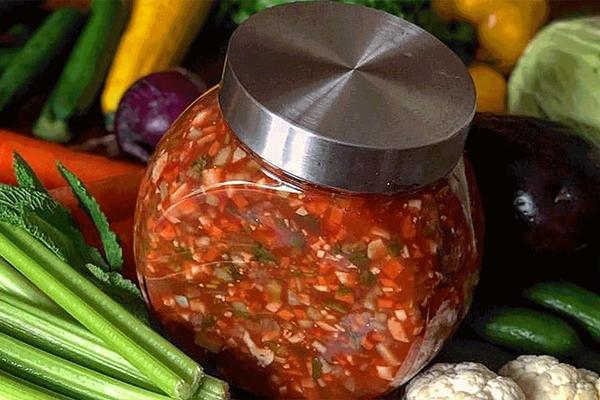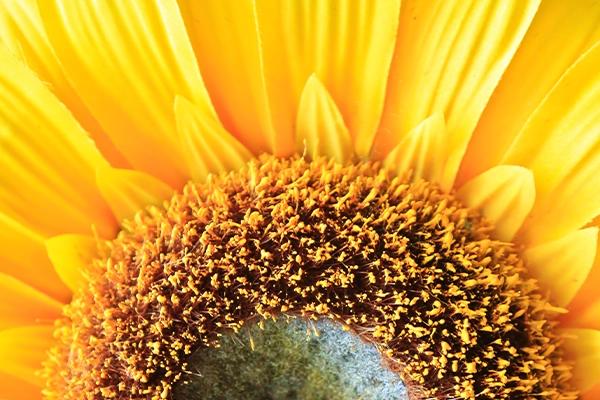Coffee is one of the most popular drinks in the world, and the caffeine in it is one of the main reasons for this popularity. But the important question that arises is: How much caffeine is in coffee? In this article, we will examine the amount of caffeine in different types of coffee.

Types of coffee and their caffeine content
1. Espresso
– Caffeine content: about 63 mg per shot (30 ml)
– Espresso has a lot of caffeine in a small volume due to its special preparation method.
2. Brewed coffee (filter)
– Caffeine content: about 95 mg per cup (240 ml)
– This type of coffee, which is usually prepared at home, has moderate caffeine.
3. Instant coffee
– Caffeine content: about 63 mg per cup (240 ml)
– Instant coffee usually has less caffeine than black coffee.
4. Cold Brew
– Caffeine content: about 200 mg per cup (240 ml)
– Iced coffee usually has more caffeine due to the longer brewing time.
5. Latte
– Caffeine content: about 75-130 mg (depending on the number of espresso shots)
Latte is usually prepared from one or two shots of espresso and milk.
Factors affecting the amount of caffeine
How much caffeine is in coffee can be affected by various factors:
1. Type of coffee bean (Arabica or Robusta)
2. Degree of roasting
3. Brewing method
4. Inhalation time
5. The ratio of coffee to water
Consumption recommendations and health tips
Considering that the how much caffeine is in coffee varies, it is necessary to observe some points in its consumption:
Allowed amount of daily caffeine consumption
– The US Food and Drug Administration (FDA) recommends that healthy adults consume no more than 400 mg of caffeine per day.
– This amount is approximately equivalent to 4-5 cups of strong coffee, but due to the difference in the amount of caffeine in different types of coffee, you should be more careful.
– For example, if you consume cold coffee, you should note that how much caffeine is in coffee higher and you may reach the daily limit with 2-3 cups.
Effects of caffeine on health
Moderate consumption of caffeine can have health benefits, including increased alertness and improved cognitive function. However, excessive caffeine consumption can lead to anxiety, insomnia, palpitations, and increased blood pressure. People who are sensitive to how much caffeine is in coffee may experience these symptoms even with smaller amounts.
How to reduce caffeine consumption for sensitive people
– If you are sensitive to caffeine, you can use types of coffee with less caffeine such as instant coffee or decaffeinated coffee.
-Gradually replacing coffee with low-caffeine or decaffeinated beverages can help reduce dependence.
– Paying attention to the time of coffee consumption is also important. Avoiding coffee near bedtime can help improve sleep quality.
Health tips in preparing coffee
– Always use clean and filtered water to prepare coffee.
– Clean coffee machines and filters regularly to prevent bacteria growth.
– Store the ground coffee in a closed container in a cool and dry place to preserve its freshness and aroma.
By following these tips and being aware how much caffeine is in coffee, you can enjoy the benefits of this popular drink while avoiding the possible side effects of consuming too much of it.
Challenges of consuming caffeine in various types of coffee
Despite the widespread popularity of coffee, its consumption can present challenges. These challenges are often directly related to caffeine levels:
1. The difference in how much caffeine is in coffee of different of types:
- The amount of caffeine in coffee can be very different depending on its type (espresso, demi coffee, cold coffee, etc.).
- This difference can lead to the unwanted consumption of too much caffeine, especially if the person is not aware of the amount of caffeine in a particular type of coffee.
2. Individual sensitivity to caffeine:
- Some people are more sensitive to how much caffeine is in coffee and may experience side effects such as insomnia, anxiety or heart palpitations even by consuming small amounts.
- Determining the appropriate amount of consumption for each person can be challenging.
3. Addiction and withdrawal from caffeine:
Regular consumption of coffee can lead to caffeine dependence.
- Sudden reduction or cessation of consumption can cause withdrawal symptoms such as headache, fatigue and irritability.
4. Interference with sleep:
- Consuming coffee with high caffeine content, especially in the evening and at night, can negatively affect the quality of sleep.
- Determining the right time to consume the last cup of coffee during the day can be challenging.
5. Effect on absorption of nutrients:
- The caffeine in coffee can reduce the absorption of some nutrients such as iron and calcium.
- Balancing coffee consumption and getting enough nutrients can be a challenge for some people.
6. Different effects on different people:
- how much caffeine is in coffee can have different effects on different people.
Some people may feel energized and focused while drinking coffee, while others may experience anxiety or restlessness.

7. Challenges related to pregnancy and breastfeeding:
- Pregnant and lactating women should be more careful in their coffee consumption and the amount of caffeine they receive.
Limiting coffee consumption during this time can be challenging.
8. Effect on blood pressure:
- The high amount of caffeine in coffee can temporarily increase blood pressure.
- People with high blood pressure should be careful in consuming coffee, which can be a challenge for coffee lovers.
By being aware of these challenges and accurately understanding how much caffeine is in coffee we consume, we can make more informed decisions about coffee consumption and reap its benefits while minimizing potential risks.
Conclusion
In answering the main question of how much caffeine is in coffee, this article showed that there is no simple and uniform answer. The amount of caffeine depends on many factors, including the type of coffee, the brewing method, and even the size of the cup.
We found that:
1. The amount of caffeine can range from about 63 mg in a shot of espresso to 200 mg in a cup of iced coffee.
2. Different coffees, from espresso to brewed coffee and cold coffee, each have **a different amount of caffeine**, which is determined based on the preparation method and brewing time.
3. Factors such as the type of coffee bean, the degree of roasting, and the ratio of coffee to water also affect the amount of caffeine.
Finally, understanding how much caffeine is in coffee and its effects on the body will allow us to use this delightful drink in a healthy and balanced way. Due to individual differences in caffeine sensitivity, each person should adjust their consumption pattern based on their body’s needs and reactions.
.
